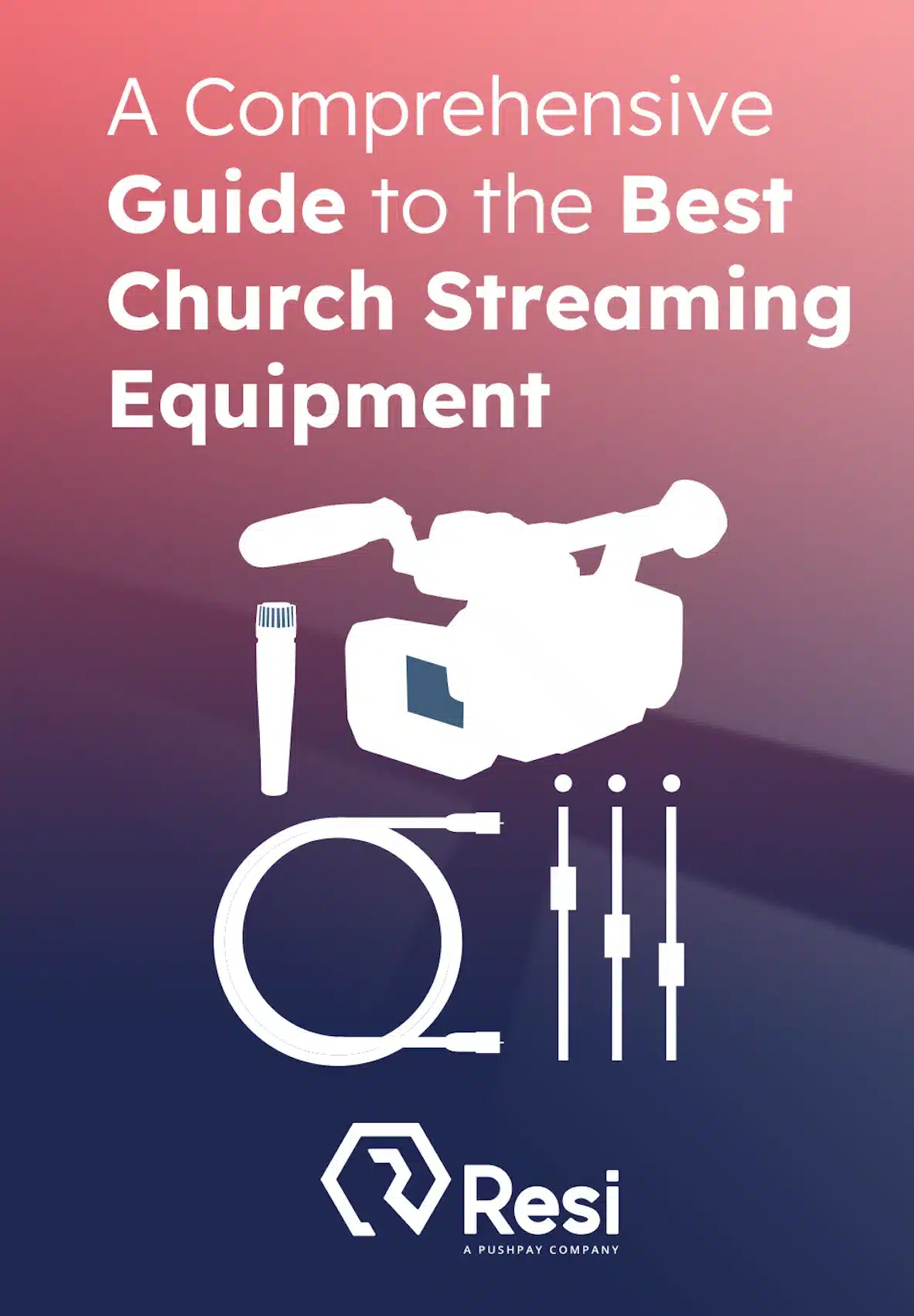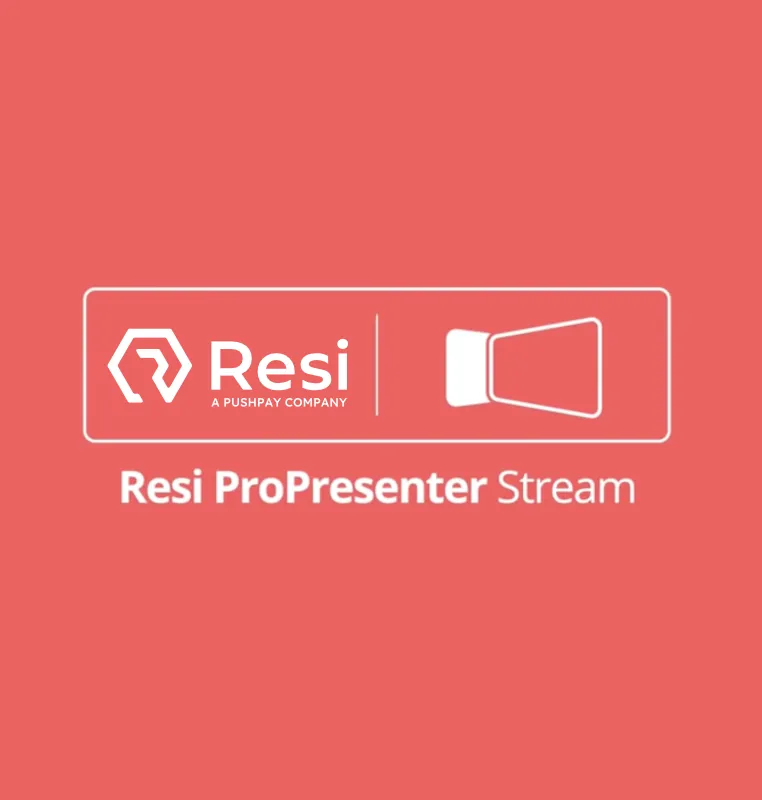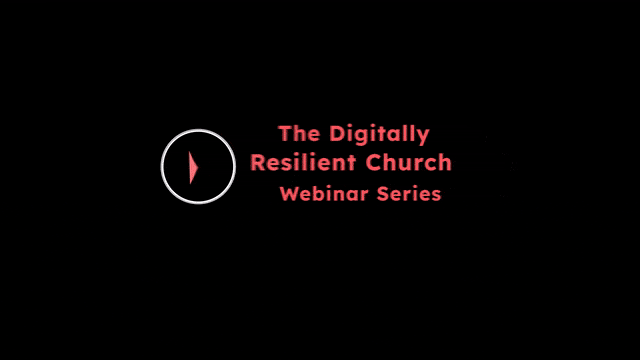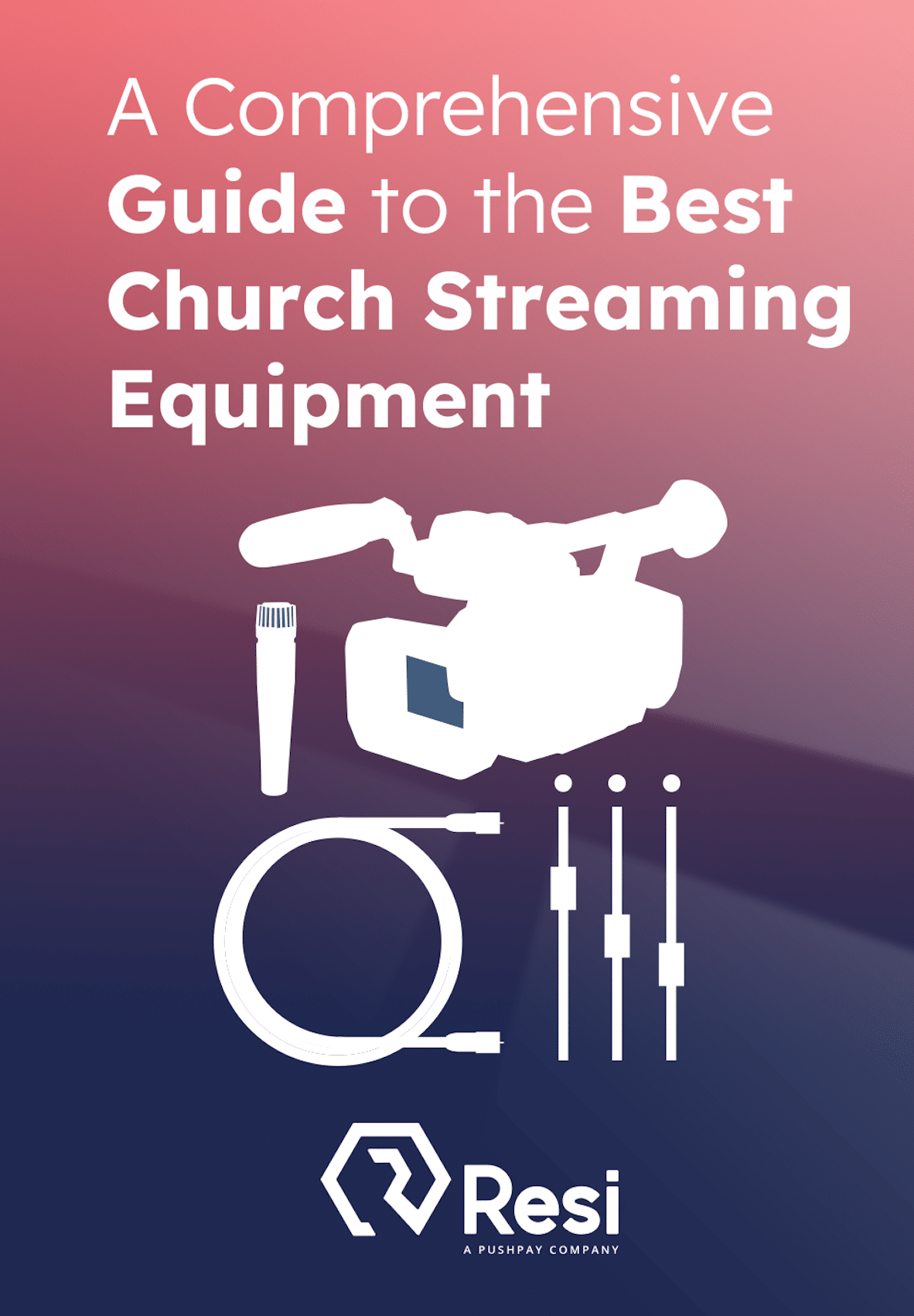
Livestreaming church services has made church incredibly accessible. People considering your church can see what your services are about before heading in person, your traveling church members can keep up with the teaching, and people physically unable to join can still attend your church service.
But church livestreaming can also bring a flurry of legal headaches, especially around streaming licenses. You may have heard, for example, about churches having their services removed from social media (Facebook Live, in particular) due to copyright issues and even getting slapped with legal fees.
Best Livestreaming Equipment
Discover what top-rated equipment we recommend adding to your church streaming toolkit.
Download for free!
We aim is to provide you with a resource that enables you to feel confident that you are legally compliant as you livestream your worship service.
What Is a Streaming License?
A streaming license grants the holder permission to share copyrighted content through internet streaming. This encompasses everything from songs sung during worship to videos and film clips used within a sermon.
Why Churches Need to Be Concerned About Licenses
Legal Compliance
The law demands respect for copyright, and churches are no exception to this rule. Engaging in streaming without the proper licenses can lead to penalties, including fines and legal action.
Ethical Considerations
Maintaining appropriate licenses reflects your respect for the original creators’ rights. Similar to conversations around the ethics of AI and whether or not AI can respect the source content from which it is pulling, churches must maintain a high ethical standard in the way they treat others’ content.
Types of Licenses for Church Streaming
Music Licenses
Churches require specific licenses to stream hymns, worship songs, and other musical works during their services. These are typically obtained from performing rights organizations that represent composers and publishers.
The primary church streaming license is the CCLI streaming license, which covers everyday needs like printing songs and projecting lyrics. The CCLI catalog is extensive and should cover most churches’ worship needs.
Video and Film Licenses
Licenses for video and film encompass a broad range of content, from movie clips used in sermons to full-length films shown at church events.
Special licenses are needed to stream this content legally, which differs from those required for personal or home viewing. Though not as commonly used as the CCLI streaming license, the CVLI copyright license is among the more popular church video license services.
Navigating License Acquisition
Identifying the Right Licenses
Determining the correct licenses involves understanding the specific needs of your church’s streaming activities. This includes considering the types of content you wish to stream and the intended use within your community.
Where to Obtain Licenses
Licenses can often be acquired directly from copyright holders or through agencies representing them. As mentioned above, organizations like CCLI, OneLicense, and CVLI offer solutions for obtaining permission to participate in worship services.
Common Misconceptions About Streaming in Churches
“Fair Use” Misunderstanding
A prevalent misconception is that the doctrine of fair use automatically covers church streaming activities. However, fair use is narrowly defined and typically does not cover streaming copyrighted content in a church setting.
Assuming License Coverage
Another common oversight is assuming that one license covers all streaming needs. In reality, different types of content require different licenses, and it’s essential to understand what licenses you need for your specific use case.
Streaming Original Content
License Requirements for Original Works
Even when streaming content created within the church, such as sermons or original music, considerations must be made regarding copyright and potential licensing requirements.
Protecting Your Content
For churches producing original content, securing copyright protection is a prudent step. This safeguards your work and ensures your content can be shared under your terms. LegalZoom has a great article about copyrighting your work.
Get Livestreaming Today With ProPresenter Stream
Stream high-quality, ultra-resilient content with Resi and ProPresenter.
Learn more
Bonus Tip
Educate Church Staff
Suppose your church ministries produce their own content (promotional videos, sermon bumpers, etc). In that case, it’s crucial that you make sure that all ministry heads involved in content creation are informed about copyright laws and the specific licenses held by the church to prevent accidental infringements.
Conclusion
Livestreaming offers churches unprecedented opportunities to broaden their outreach. By approaching this opportunity carefully and considering copyright laws and ethical obligations, churches can ensure that their digital ministry is built on a foundation of respect for copyright and commitment to legal and moral integrity.







